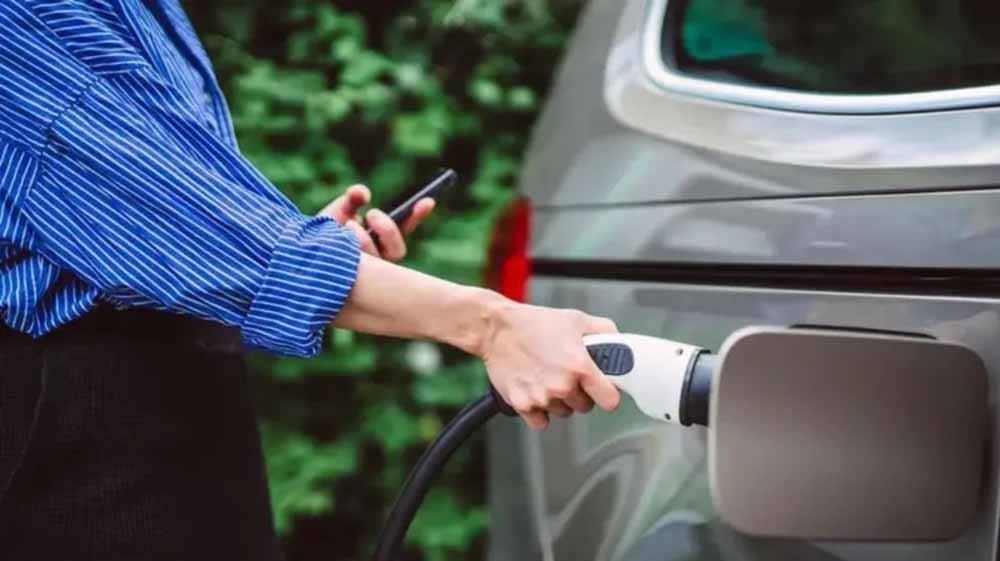The deadline is just a decade away. From 2035, if you buy a new car in the UK, it will have to be 100% emissions free.
But while the pressure to move to electric vehicles (EVs) is transforming the car making landscape, there are firms in the UK seizing an opportunity and creating jobs.
They will, however, have to overcome the barriers that studies show still deter motorists from making the switch – cost, range anxiety, charging time and infrastructure.
The Department for Transport said one in five new cars sold in May was electric, with the UK leading Europe in EV sales this year.
The race to develop consumer-friendly EV technology is on.
Rules imposed to speed up the transition to electric vehicles in the UK partly drove the decision to close the Vauxhall plant in Luton in March, with the loss of more than 1,000 jobs.
For manufacturers, the goal is to make EVs as quick and easy to use as petrol and diesel cars.
The Cambridge start-up company, Nyobolt, believes that starts with battery charging.
In track tests, in a purpose-built sports car, a new battery developed by Nyobolt charged from 10% to 80% in four minutes and 37 seconds – from a 350kW charger.
It also has a long-life span – able to charge 4000 full cycles while maintaining over 80% battery retention.
The Chinese company BYD announced an ultra-fast charging battery earlier this year. It has overtaken Tesla as the best-selling EV maker in the world, and has just launched a car in the UK. In China, which has prioritised advances in this area, EVs are now mainstream.
But the success of Nyobolt’s current technology relies on consumers accepting something different.
It is not producing batteries with long ranges, because government data suggests 99% of car journeys in the UK are within 100 miles (161km). The test car had a range of 155 miles (250km).
The secret to Nyobolt’s battery lies in the anode – the part of the battery which receives electrons when charging and releases them when the battery is being used.
The company uses Niobium Tungsten Oxide which Steve Hutchins, vice president of engineering and operations, says has addressed some of the issues associated with lithium-ion batteries.
The company is manufacturing its anode material at a new factory in Haverhill, Suffolk because “it’s really important to have production close to the researchers in Cambridge”.
About 70 staff are expected to work at the site once fully operational, but that relies on demand for the product. The company is in talks with a number of manufacturers, but even though EV sales are increasing, it takes time for companies to invest.
“Given the safety tests that have to take place, it could take around four years to get this to market,” the company said.
The Society of Motor Manufacturers and Traders says the charging infrastructure remains the biggest hurdle in changing attitudes to EVs.
As of May 2025, there were 80,998 public charging points in the UK – 8,284 of them were 150kW or above.
Nyobolt’s batteries charge with a 350kW device. BYD’s newly unveiled battery charges at 1000kW.
Gridserve, a company specialising in EV charging infrastructure, has started to roll out 350kW devices at service stations along the M1, M4 and “electric forecourts” in Norwich and Braintree – but they make up a small fraction of the overall public system. (BBC)
Tuesday, February 24, 2026

